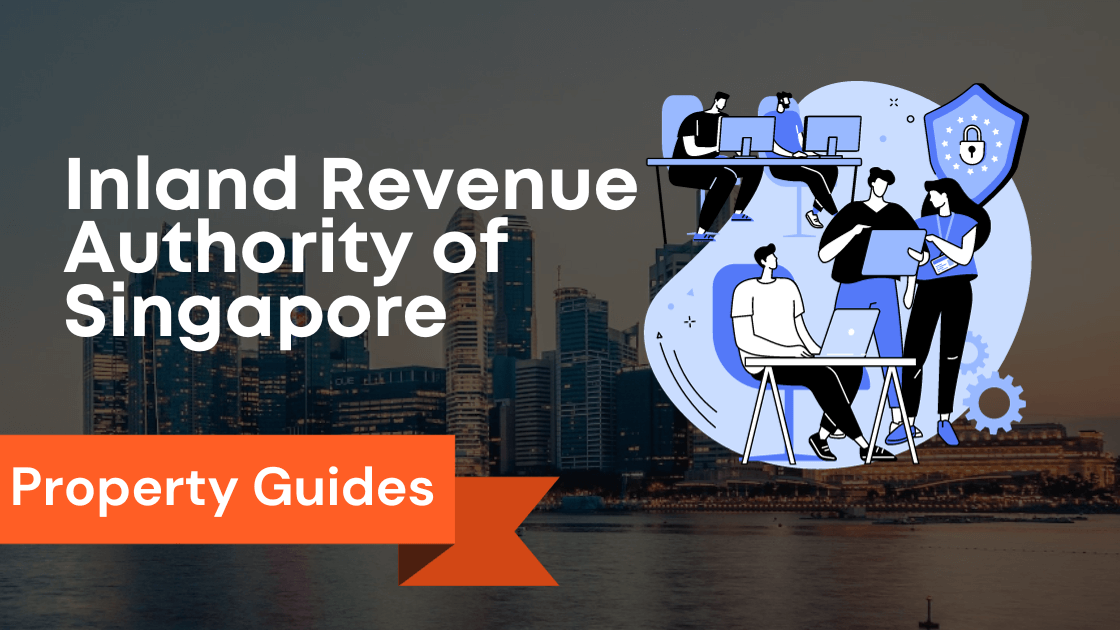
Introduction to En-Bloc Sales
En-bloc sale, commonly known as collective sale, is a hot topic in Singapore’s real estate market.
Many property owners are considering participating in en-bloc sales to capitalize on the high demand for land.
If you’re a property owner in Singapore, you might wonder what the en-bloc sale is about and why it’s gaining popularity.
This article will provide an overview of en-bloc sales and their importance in the real estate market.
History and Definition of en-bloc Sale in Singapore
En-bloc sale refers to the collective sale of older properties, such as condominiums or apartment buildings, to developers who seek to redevelop the land.
Before 1998, the en-bloc process was less regulated and often involved selling individual units.
However, with the introducing of the Land Titles (Strata) Act in 1998, the process became more streamlined and allowed the collective sale of the entire property.
En-bloc sale is a way for property owners to unlock the value of their aging properties, as the land value typically appreciates over time.
It offers a unique opportunity for property owners to sell their property at a higher price than individual unit sales.
Importance of en-bloc sales in the real estate market
En-bloc sales significantly affect the real estate market, benefiting different parties.
Property owners can reap substantial financial gains by selling their properties collectively.
Developers, on the other hand, acquire prime land for future development.
These sales also contribute to the redevelopment of older properties, enhancing the overall landscape of Singapore’s real estate market.
En-bloc sales have become increasingly attractive due to rising land prices, high demand for residential properties, and the availability of en-bloc sites.
The sales process involves several stages, including obtaining the requisite percentage of owners’ consent, valuation assessment, and the payment of Additional Buyer’s Stamp Duty (ABSD).
In conclusion, en-bloc sales offer great potential for property owners and developers in Singapore’s real estate market.
Whether you are a property owner looking to sell your property or a developer seeking land for future projects, en-bloc sales provide a mutually beneficial opportunity for all parties involved.
Key Takeaways
- En-Bloc Sale Defined: En-bloc sale, also known as collective sale, involves property owners collectively selling older properties to developers for redevelopment.
- Regulation: En-bloc sales were streamlined in 1998 with the introduction of the Land Titles (Strata) Act, allowing for collective sales of entire properties.
- Value Unlocking: En-bloc sales offer property owners the opportunity to unlock the value of aging properties, typically selling at higher prices than individual units.
- Mutual Benefits: En-bloc sales benefit property owners by providing financial gains and developers by acquiring prime land for future projects.
- Sales Process: The process involves stages like obtaining owner consent, valuation assessment, and payment of Additional Buyer’s Stamp Duty (ABSD).
- Property Owner Considerations: Property owners should consider factors like replacement property, professional advice, and understanding plot ratios.
- Potential En-Bloc Sites: Potential en-bloc sites are identified based on land registers and factors like age and plot ratios.
- Developer Role: Property developers assess development potential, take on redevelopment risks, and need approval from the Strata Title Board.
- Evaluation Factors: Plot ratio, market conditions, property proximity, economic factors, and government land sales are key when evaluating en-bloc potential.
- Market Impact: En-bloc sales impact property prices, rental rates, and contribute to the rejuvenation of older estates.
Understanding En-Bloc Sales in Singapore 2023

En-Bloc Sale in Singapore: Latest News and Updates
En-bloc sales have been making headlines in Singapore’s real estate market, and property owners are eagerly following the latest news on this trend.
A recent report indicated that en-bloc sales could surge in 2023, high court, making it a suitable time for owners to consider selling their properties collectively.
En-bloc sales involve property owners collectively selling their units to a property developer.
Sales typically start with a public tender, where interested developers submit bids.
The property developer with the highest bid wins the collective deal.
Collective Sale: Process, Procedures, and Legalities
The process of a collective sale involves several steps and legalities.
Property owners interested in en-bloc sales must engage a property consultant to guide them through the process.
The property consultant will advise on the proper procedures and ensure all legal requirements are met.
One crucial consideration is the Additional Buyer’s Stamp Duty (ABSD).
Property owners must know the potential tax implications when participating in a collective sale.
Understanding the stamp duty obligations and planning accordingly is essential to maximize profits from the en-bloc sale.
Critical Considerations for Property Owners in En-Bloc Sales
Property owners contemplating an en-bloc sale should carefully consider several factors.
These include identifying a suitable replacement property, seeking advice from property consultants, and understanding plot ratios and development potential.
Working with experienced professionals can help property owners make informed decisions and maximize the potential of their en-bloc sale.
En-bloc sales allow property owners to unlock the value of their older properties and capitalize on the current real estate market.
Staying updated with the latest en-bloc news and understanding the sales process and legalities is crucial for property owners considering an en-bloc sale in Singapore.
En Bloc Sites in Singapore

Identifying Potential En-Bloc Sites in Singapore
In Singapore, en-bloc sales have been making headlines recently, especially as property owners seek opportunities to cash in on the strong real estate market.
An en-bloc deal, also known as a collective sale, sells an entire strata titled development to a single buyer.
It involves property owners coming together to sell their units collectively, usually to a property developer.
Property owners and developers must consider several factors to identify potential en-bloc sites in Singapore.
One key indicator is the land register, which keeps track of the different land parcels and their owners.
Likely condos that are older and have a lower plot ratio could also be prime en-bloc candidates.
The Role of Property Developers in En-Bloc Sales
Property developers play a crucial role in the en-bloc sales process.
They are responsible for assessing the site’s development potential and taking on the risks associated with the redevelopment.
These risks include hefty development charges, which the property developer must factor into their financial calculations.
Engaging with the Strata Title Board is also necessary to obtain approval from the respective owners.
Evaluating En-Bloc Potential: Factors such as plot ratio, current market conditions, and more
Several factors come into play when evaluating the en-bloc potential of a site.
Plot ratio, which determines the maximum allowable gross floor area for a development, is a critical consideration.
The proximity of nearby products and the current state of the property market also impact the decision to engage in an en-bloc sale.
Economic uncertainty and government land sales are additional factors that should be considered.
In conclusion, en-bloc sales present an opportunity for property owners in Singapore to unlock the value of their older properties in a buoyant real estate market.
Property owners can navigate the en-bloc sales process by identifying potential en-bloc sites, working with property developers, and evaluating key factors.
The Sales Process and Beyond

The En-Bloc Sale Process: From inception to completion
Selling your property through an en-bloc sale in Singapore involves a structured process that starts with forming a collective sale committee.
This committee is responsible for managing the sale and ensuring the majority of property owners are in favor of the en-bloc deal.
The period for this process can vary depending on multiple factors, such as the size of the development and the complexity of ownership arrangements.
Once the majority is achieved, the sales process can begin.
Property developers show interest and make offers for the en-bloc site.
The sale is successful when the developer meets the conditions the collective sale committee sets, and most owners have agreed to sell.
It’s important to note that the sales process for en-bloc sales can be affected by cooling measures imposed by the government to regulate the real estate market.
These measures may include additional stamp duties, such as the Additional Buyer’s Stamp Duty (ABSD), levied on property buyers, including developers.
The rates of ABSD can vary depending on the buyer’s profile and the number of properties owned.
Understanding Additional Buyer’s Stamp Duty (ABSD) in En-Bloc Sales
In an en-bloc sale, the ABSD can have implications for property owners and developers.
Property owners should be aware of the ABSD rates and how they may affect the share value of their property during the sale.
On the other hand, developers need to consider the impact of ABSD on their costs when submitting their bids.
Tips for Property Owners: Preparing for an En-Bloc Sale
Property owners considering an en-bloc sale should seek professional advice from property consultants specializing in en-bloc transactions.
These consultants can guide property owners through the entire process, from assessing the potential of their property for an en-bloc sale to negotiating terms with developers.
Owners can also benefit from understanding the concept of stratum, which refers to the vertical division of a property into separate strata lots.
This division can impact the sharing of sale proceeds among property owners.
Additionally, property owners should stay informed about the latest news and updates regarding property cooling measures and en-bloc sales in Singapore.
Being well-informed can help owners make informed decisions and exploit favorable market conditions.
En-Bloc Sale Latest News and Trends

Latest Trends in En-Bloc Sales in Singapore
The en-bloc sale market in Singapore has been gaining momentum in recent years.
With the introduction of property curbs and cooling measures, many property owners have turned to collective sales to sell their properties.
The latest trends in en-bloc sales include an increase in resale condos being put up for collective sale and a rise in successful transactions.
The real estate market in Singapore is constantly evolving, and en-bloc news is something property owners and investors closely follow.
With property transaction rules and regulations tightening, en-bloc sales have become famous for property owners looking to maximize their profits.
Developers also seek en-bloc sites to acquire prime land for new residential projects.
Impact of En-Bloc Sales on the Real Estate Market
En-bloc sales have a significant impact on the real estate market in Singapore.
When a collective sale project is successful, property owners receive substantial sales proceeds, which they can reinvest into other properties or assets.
The injection of new supply into the market also affects property prices and rental rates in the surrounding areas.
Condos sold via en-bloc tend to attract developers with the financial means to redevelop the site into higher-value properties.
This redevelopment activity helps to rejuvenate older estates and contributes to the overall improvement of the real estate landscape.
En-Bloc Sale: The Future of Older Properties in Singapore
With Singapore’s increasing age of properties, en-bloc attempts have become common.
Property owners, especially those who own older properties, see en-bloc sales as an opportunity to sell their units at a higher price.
This trend has also led to the development of more affordable homes, catering to those looking to enter the property market.
However, it is essential to note that en-bloc attempts are only sometimes successful.
There are many factors to consider, such as the development charges and the project’s feasibility.
Property owners considering an en-bloc sale should consult with professionals who can guide them through the entire sales process and assess the potential value of their property.
In conclusion, en-bloc sales have become an integral part of the real estate market in Singapore.
Whether you are a property owner or a potential buyer, staying updated with the latest en-bloc news and trends will allow you to make informed decisions in the ever-changing property market.
The Collective Sale Process

Overview of the Collective Sale Process in Singapore
En-bloc sales, collective sales, have become a common trend in the Singapore real estate market.
An en-bloc sale could be lucrative for owners looking to sell their aging or older properties.
Here’s an overview of the collective sale process in Singapore:
- Collective Sale Cycle: The process typically begins with a decision by most owners within a development to sell their units collectively. This can be initiated by a group of owners or by appointing a property consultant.
- Sale Proposal: A sales committee is formed to develop a sale proposal, which includes details such as the reserve price, plot ratio, and development potential of the site. The proposal is then presented to the owners for approval.
- Tender for Sale: Once the proposal is approved, the property is sold through a tender process. Property developers and investors then submit their bids; the highest bid is usually selected.
- Collective Sale: After selecting a winning bid, the sale is considered successful, and the property developer acquires the site. The sale proceeds are distributed among the owners based on their share value in the development.
- Sales Process: The property developer takes over the site and plans to develop new condominiums or other properties. This process can take several years, and owners are usually given the option to purchase an equivalent unit in the new development, known as a replacement property.
Critical Considerations for Property Owners in En-Bloc Sales
Property owners contemplating an en-bloc sale should carefully consider the following factors:
- Replacement Property: As part of the collective sale, property owners may have the opportunity to purchase a replacement property in the new development. It is essential to assess the quality, location, and value of the replacement property before deciding.
- Advice from Property Consultants: Engaging a property consultant can provide valuable advice on the en-bloc process, market conditions, and potential sale prices. They can help property owners navigate the complicated process and maximize their returns.
- Strata Title and Area: Understanding strata title ownership and the strata area is crucial for property owners. They should be aware of their share value in the development and how it may impact the distribution of proceeds from the en-bloc sale.
En-bloc sales allow property owners to maximize their value in a buoyant real estate market.
However, it is crucial to consider all aspects of the process and seek professional advice to make informed decisions.
Essential Factors in En-Bloc Sales

Understanding the Additional Buyer’s Stamp Duty (ABSD) in En-Bloc Sales
The focus is on grasping the concept of ABSD and its implications in the context of en-bloc sales.
ABSD is a stamp duty imposed on property buyers in Singapore, introduced by the government to regulate the property market.
The ABSD rates vary depending on the buyer’s profile.
For Singapore citizens, the rates start at 0% for the first residential property purchase and go up to 12% for subsequent purchases.
Permanent residents face rates starting at 5% and foreigners at 20% for the first property purchase.
Developers are also liable for ABSD, with rates of 30% for entities and 25% for individuals.
Understanding ABSD is crucial in navigating the complexities of purchasing private residential properties and staying compliant with government regulations.
Exploring the Plot Ratio and its Impact on En-Bloc Sales
Several key factors come into play when exploring the plot ratio and its impact on en-bloc sales.
The plot ratio, also known as the floor area ratio, determines the maximum allowed floor area of a building about the size of the land it occupies.
Developers are keen on maximizing the plot ratio as it directly impacts a property’s potential yield and profit.
Nearby development projects and infrastructure upgrades can significantly affect the plot ratio and influence en-bloc sales.
Economic uncertainty also plays a role, as developers may be more cautious during market volatility.
Property developers must stay updated on the plot ratio regulations the Urban Redevelopment Authority sets, as any changes can significantly impact the feasibility and attractiveness of en-bloc sales.
En Bloc Sale: A Closer Look

Insights into the Real Estate Market and En-Bloc Sales in Singapore
Both investors and homeowners have closely watched the real estate market in Singapore, as it has experienced significant fluctuations in recent years.
The introduction of property curbs by the government has impacted the property transaction landscape and influenced buyer sentiment.
One notable phenomenon in the Singapore real estate market is the concept of en-bloc sales.
En bloc sales refer to the collective sale of a group of owners in a specific development.
This practice gained popularity as developers sought to capitalize on rising property prices and the demand for redevelopment.
En-bloc sales have attracted buyers and sellers, with developers looking for potential development sites and homeowners seeking lucrative profits.
This trend has significantly shaped the property market in Singapore, creating opportunities for investment and redevelopment.
However, it is worth noting that the en-bloc sale process is challenging.
Sustained property curbs have impacted developers’ appetite for en-bloc sales, en bloc potential, as increased stamp duties and tightened loan limits have affected their financial viability.
Overall, Singapore’s real estate market continues to be a dynamic and evolving landscape.
Potential buyers and sellers should carefully analyze market trends and regulations to make informed decisions.
Tips to Sell Your Property in an En-Bloc Sale
Property owners can benefit from seeking professional advice to ensure a smooth and successful transaction when selling their property in an en-bloc sale.
One of the first steps is appointing property consultants with experience handling en-bloc sales.
These experts can guide property owners throughout the process, from determining the market value of their condos to the negotiation phase with potential buyers.
Additionally, staying informed about the property market trends and understanding the preferences of potential buyers can significantly increase the chances of a successful sale.
By following these 8.
2 tips, property owners can maximize their chances of selling their property in an en-bloc sale.
Conclusion
En-bloc sale in Singapore
In conclusion, en-bloc sales have become a popular trend in Singapore’s property market, as property owners look for opportunities to make a profit and capitalize on the scarcity of land.
The process of en-bloc sale refers to the collective sale of a property by a minimum of least 80 of the owners in a development, allowing them to sell their homes as a joint unit.
En-bloc sales have seen great success recently, with several large-scale en-bloc sales making headlines in the news.
The most significant en-bloc sales in Singapore’s history have involved older developments, usually more than 10 years old, where the land value is significantly higher than the value of the individual units.
The en-bloc process involves the formation of an en-bloc committee representing the owners’ interests in negotiations with developers or the government.
Once a consensus is reached to sell the property collectively, the owners can complete the en-bloc sale within a short period, typically within 12 months.
The method of apportionment is used to distribute the sale proceeds among the owners based on various factors, such as the size and location of their units.
Owners who agree to a collective sale can use their profits to purchase a new property or invest in other ventures.
En-bloc sales not only benefit property owners but also have a positive impact on the overall property market.
The sale of older developments creates opportunities for new products to be built, adding to the housing supply in Singapore.
This is especially important in areas where land is scarce and the government is implementing measures to cool the property market.
Overall, en-bloc sales in Singapore have become a viable option for property owners looking to sell their homes and make a profit.
The rising demand for en-bloc sales indicates the potential for further growth in this property market segment, providing opportunities for both developers and Singaporeans looking to invest or purchase new properties.
Frequently Asked Questions
What is an en-bloc sale?
An en-bloc sale refers to the collective sale of multiple units in a development, typically involving older properties, to a property developer.
It is a process where property owners agree to sell their properties together as a single transaction.
How does an en-bloc sale work?
Property owners form an en-bloc committee or collective sale committee (CSC) to initiate the sale in an en-bloc sale.
They negotiate with a property developer, and once an agreement is reached, a certain percentage of owners must agree.
The deal is then completed, and the developer usually demolishes the existing buildings to make way for a new development.
What are the benefits of an en-bloc sale?
En-bloc sales allow property owners to sell their properties at a higher price than individually selling their units.
It also allows for the redevelopment of older properties and can contribute to revitalizing a neighborhood or area.
What are the criteria for an en-bloc sale?
The criteria for an en-bloc sale can vary depending on the specific development and the regulations set by the Urban Redevelopment Authority (URA) in Singapore.
However, generally, the product must be at least ten years old, and a certain percentage of property owners must agree to the sale.
How can I know if my property has en-bloc potential?
If you are considering an en-bloc sale, it is advisable to consult with a real estate agent or seek professional advice to assess the potential for an en-bloc sale of your property.
Factors such as the location, size of the development, and current real estate market conditions can influence the en-bloc potential of a property.
What is the role of the en-bloc committee in the sale?
The en-bloc committee, also known as the collective sale committee (CSC), is responsible for initiating and managing the en-bloc sale process.
They negotiate with property developers, gather the necessary approvals from property owners, and oversee the entire sale process.
Can HDB flats and condo be sold en bloc?
No, Housing and Development Board (HDB) flats cannot be sold en bloc.
En-bloc sales are typically limited to private residential properties such as condos or apartments.
Can property developer owners refuse to agree to an en-bloc sale?
Yes, property owners have the right to refuse to agree to an en-bloc sale.
For the deal to proceed, a certain percentage of property owners need to consent, and there are specific rules and regulations in place to protect the rights of individual property owners.
What is ABSD about en-bloc sales?
ABSD stands for Additional Buyer’s Stamp Duty.
It is a tax imposed by the Singapore government on certain property transactions, including en-bloc sales.
Property developers may need to factor in ABSD when calculating an en-bloc sale’s costs and potential profitability.
Are there any restrictions or requirements regarding using funds from an en-bloc sale?
The use of funds from an en-bloc sale is subject to guidelines set by the government and relevant authorities.
Generally, the funds are used to repay any outstanding loans or mortgages and distribute the remaining proceeds to the property owners based on their ownership share.












